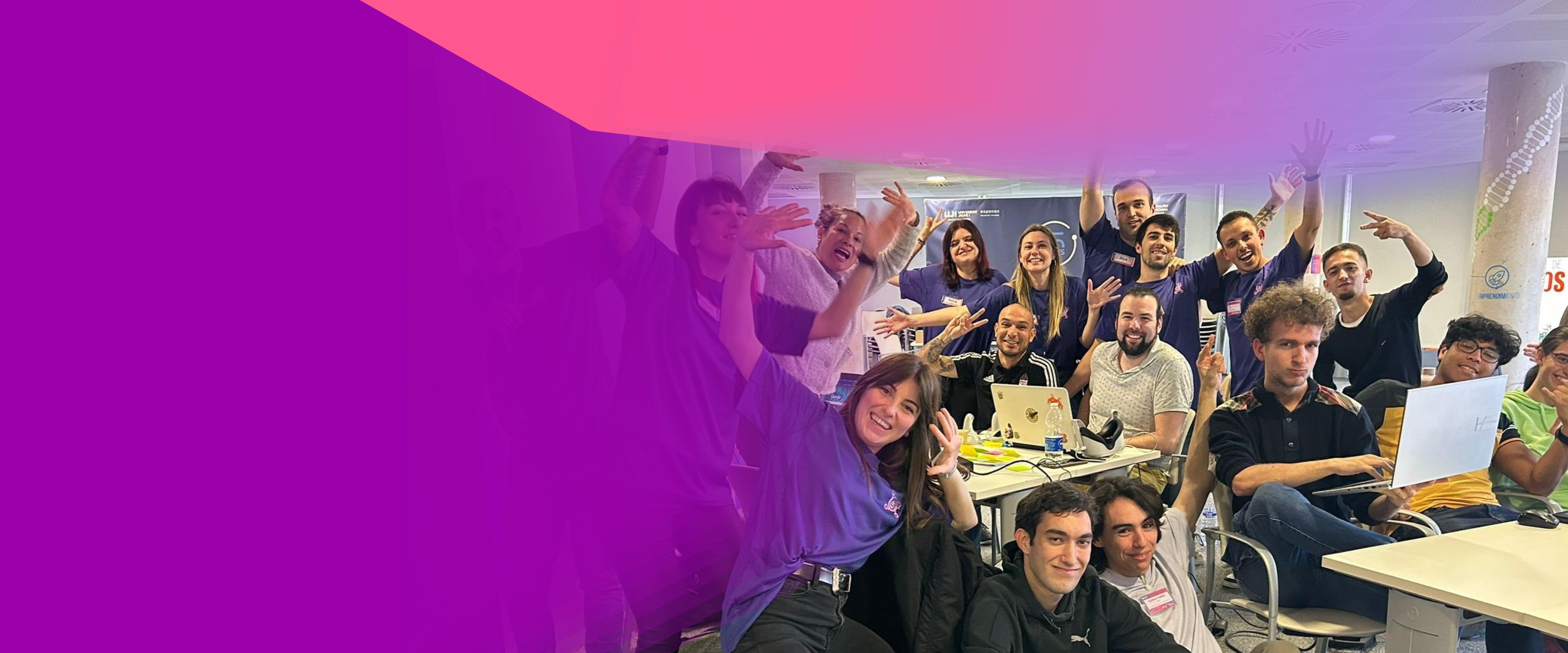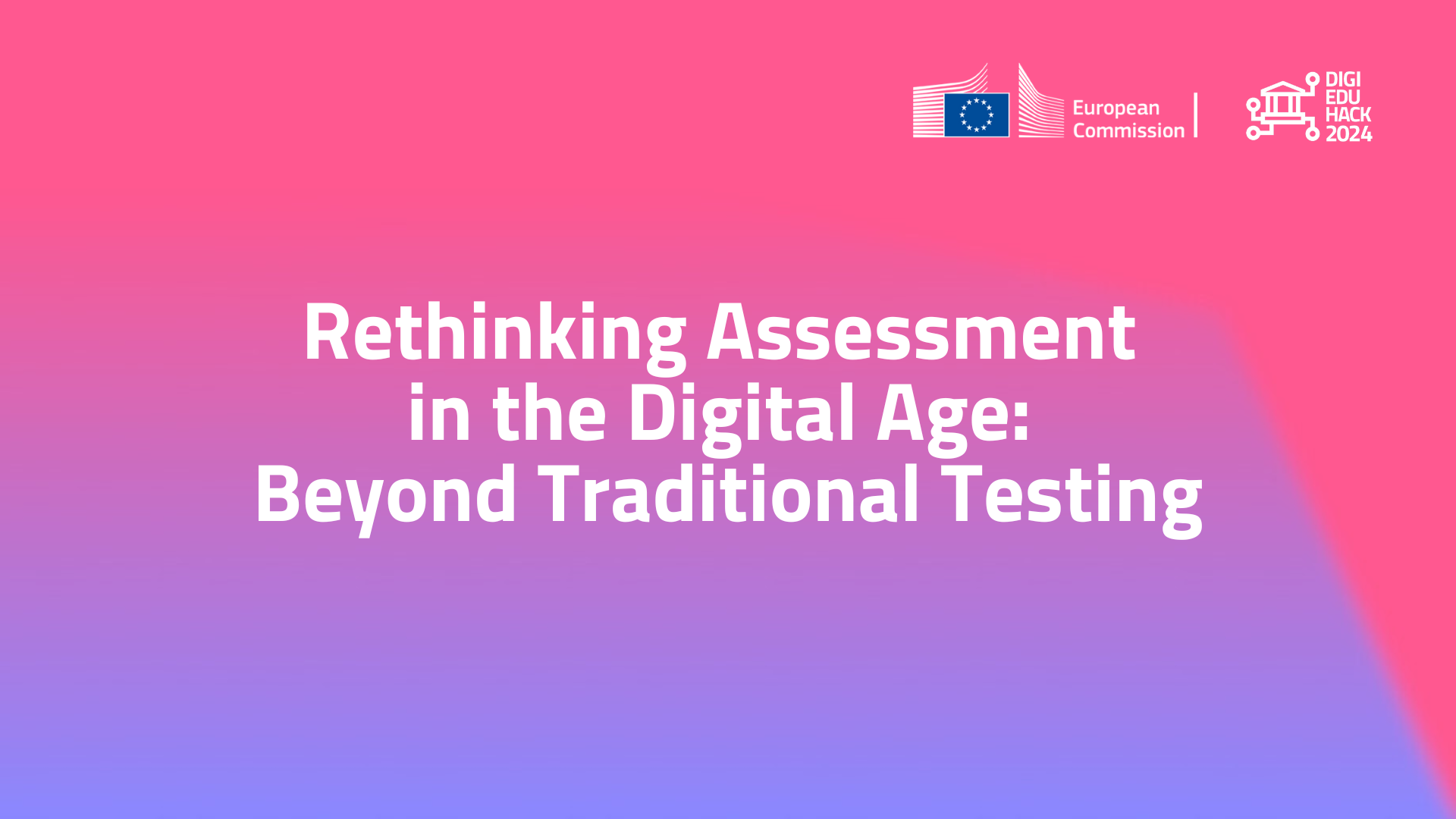Rethinking Assessment in the Digital Age: Beyond Traditional Testing
Digital education is at a critical inflection point, with traditional assessment methods struggling to measure 21st-century learning outcomes. The shift toward digital assessment represents more than simply moving existing tests online—it requires a fundamental reimagining of how we evaluate, support, and enhance student learning in an interconnected world.
This challenge was the central focus of a recent DigiEduHack Learning Series webinar that brought together European education experts.
Let’s explore the transformative promises and practical hurdles of assessment innovation and how to develop effective online and AI-powered assessment solutions.
From Policy to Practice: What's Changing?
International assessment frameworks drive unprecedented changes in how countries approach student evaluation. The Programme for International Student Assessment (PISA) and International Computer and Information Literacy Study (ICILS) have evolved beyond traditional subject testing to emphasize digital competencies, collaborative problem-solving, and critical thinking skills that reflect modern workforce demands.
According to policy experts like Danijela Šćepanović from Serbia's Ministry of Education, these frameworks serve a dual purpose: they help countries benchmark student competencies against international standards while guiding policy development across both EU and non-EU nations. However, the real challenge lies in translating these broad international standards into practical, implementable strategies that work within diverse national contexts.
Šćepanović emphasizes that effective implementation requires coordinated efforts between ministries, institutions, and individual educators. The coordination challenge is particularly acute in federal systems where education policy involves multiple levels of government. The policy landscape is further complicated by varying technological infrastructure, cultural attitudes toward assessment, and resource availability across different countries and regions.
Practical Insights: Making Assessment Work
Success stories typically involve nations that have invested not just in policy development but in comprehensive support systems for implementation. This multi-level approach ensures that policy changes don't remain abstract mandates but translate into meaningful improvements in how students experience assessment and feedback in their daily learning environments. Martins Marques explained how gamified elements, project-based activities, and innovative tools enhance engagement, accessibility, and critical thinking. "Assessment should be a learning tool, not a one-time checkpoint," she stressed.
Šćepanović added that classroom-based assessments and international evaluations like PISA and ICILS play complementary roles in shaping both formative learning at the local level and national strategy through comparative insights.
Innovation in Action: Projects and Tools
In the second segment, Gabriella Mária Nagy (Obuda University, Hungary) and Sebastian Schwäbe (Blinc Institute, Germany) showcased practical tools and models. Nagy drew attention to the numerous obstacles universities face when adopting digital assessments. These include technological limitations, outdated structures, cultural resistance, and the need for comprehensive organizsational restructuring to support long-term change.
Schwäbe emphasized the growing importance of self-assessment models, for instance, in higher education. These assessment tools, such as Level 5 Certificate model developed by Blinc, enable students and educators to evaluate and document competencies that may not always fit into traditional exam structures.
Future Directions and Opportunities
Despite these hurdles, the session concluded with optimism about hybrid assessment models. All speakers agreed that combining AI-powered analytics with human judgement will be central to creating inclusive, effective, and competency-oriented assessment systems. Among the priorities identified were stronger policy frameworks for equity, scalable technological solutions, and institutional reforms that promote flexibility, personalizsation, and student-centered learning.
The evidence from successful implementations across Europe and beyond suggests that institutions willing to invest in comprehensive, strategically planned assessment transformation can achieve remarkable improvements in student engagement, learning outcomes, and educational effectiveness.
Watch the full webinar online to hear these experts share detailed case studies, practical frameworks, and actionable strategies for implementing digital assessment innovations in your educational context.
Want to Rethink Education With Us?
DigiEduHack 2025 is open for host recruitment across schools, universities, and companies. Explore how you can get involved, design your own challenges, and shape the future of learning. Register to host!

